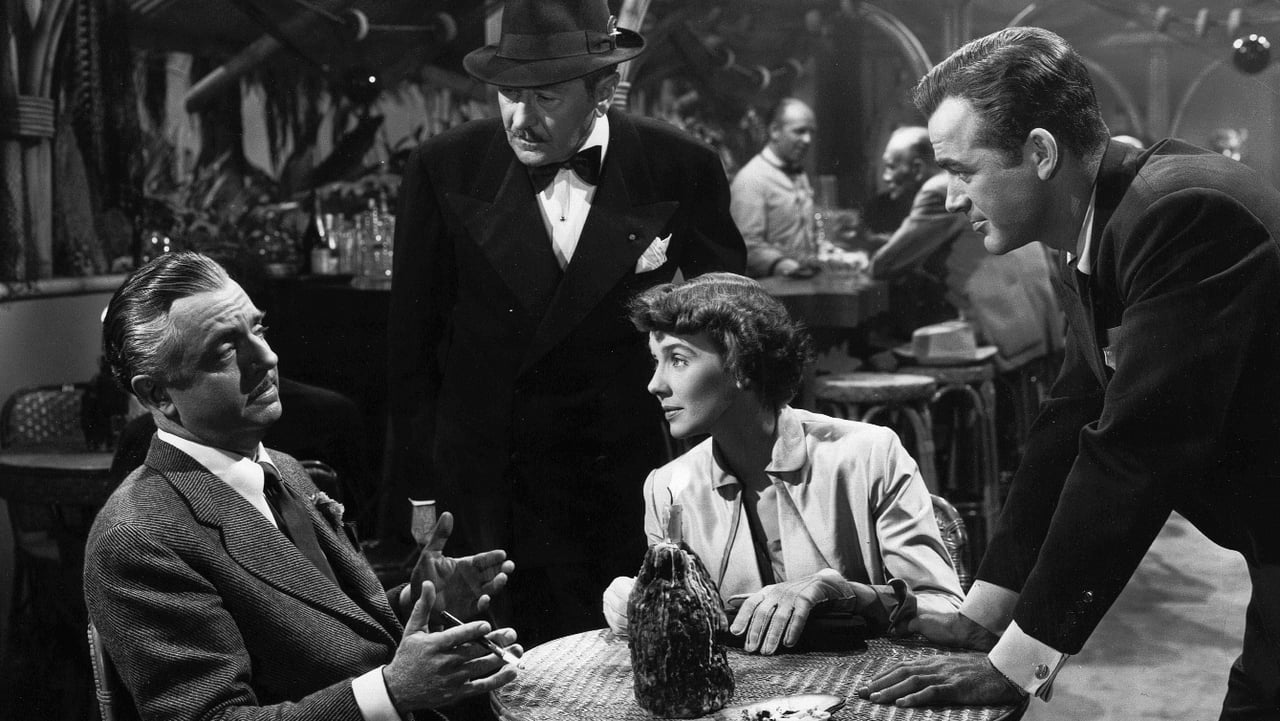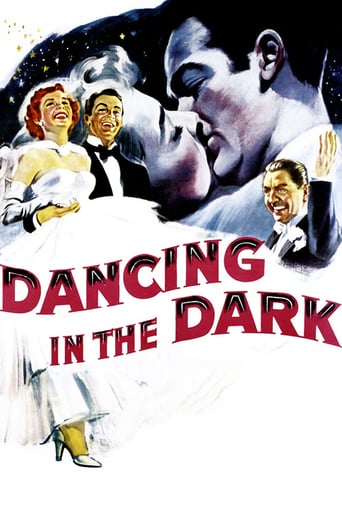

Am I Missing Something?
... View MoreAll of these films share one commonality, that being a kind of emotional center that humanizes a cast of monsters.
... View MoreIt's simply great fun, a winsome film and an occasionally over-the-top luxury fantasy that never flags.
... View MoreGreat example of an old-fashioned, pure-at-heart escapist event movie that doesn't pretend to be anything that it's not and has boat loads of fun being its own ludicrous self.
... View MoreThat's how William Powell's Emory Slade describes his reputation as a temperamental former star who becomes a Hollywood talent scout when 20th Century Fox plans a film version of the 1931 Broadway musical revue "The Band Wagon" (and which MGM later added a story and more of its songs to). Only a few of the Dietz and Schwartz songs are heard here before Fred Astaire and Cyd Charisse danced in the dark, and the storyline here is much darker, too.Powell plays an actor with many personal demons, very much unlike his most famous character of Nick Charles, and even darker than his Broadway mogul, Florenz Ziegfeld. Here, Powell is promoter, not producer, that role being given to the equally legendary Adolph Menjou, while Jean Hersholt (of the Oscar's Humanitarian Award) plays himself as the representative of the Motion Picture Aid Society determined to help the down on his luck but stubborn Powell.As for Betsy Drake as the young ingénue chosen for the lead in the musical, she is certainly lovely, but lacking in superstar magnetism. She is a fine singer and dancer, but I can't believe anybody would buy her as the next Judy Garland or Betty Grable (Cary Grant, maybe, but he married her...) The musical numbers are cut down to two separate segment "auditions"-one live ("New Sun in the Sky"), the other a filmed screen-test that is shown at the Chinese Grauman's where Drake sings and dances the title song and a bit of "I Love Louisa".As a musical, I recommend "The Band Wagon" far more than this, but this is a unique credit in Powell's career, one of his darker dramatic parts, and highly recommended for that. Mark Stevens seems out of place here as Drake's love interest, but there is an amusing cameo by future "Caged" matron Hope Emerson as Powell's gruff landlady.
... View MoreBetsy Drake must have been "Dancing in the Dark" in this 1949 film starring William Powell, Mark Stevens, Adolph Menjou and Gene Hersholt. Black and white with not much budget, 20th Century Fox apparently used this movie musical to promote "The Prince of Foxes" (which they also didn't bother to shoot in color) rather than Betsy Drake. Nobody was doing her any favors by putting her in this film.William Powell plays a much hated has-been movie star named Emery Slade. Down on his luck and too proud to accept charity, he convinces Melville Crossman, the head of 20th Century Fox, that he can sign a Broadway star to a contract for a big film (not this one). The star is the daughter of his former show business partner. Fox puts him on as an agent and sends him to New York with a publicist, Bill Davis (Mark Stevens). Bill is in love with an aspiring performer, Julie Clarke (Drake). But she won't marry him until she's had her chance. Unbeknownst to Bill, Julie goes to see Slade to try and get an audition for the movie, not realizing that an item about it in the trade papers isn't really true. Drunk and half asleep, when Emery wakes up and sees Julie, he thinks she's an old girlfriend. There's a good reason for that. Maybe you can guess what it is. He did. Anyway, Emery discourages the Broadway star from taking the role and works with Julie so that Crossman will cast her.There are a couple of problems with this film. The first one is that it looks cheap. The second one is Betsy Drake. A pretty woman, Drake was only a fair actress, a non-dancer and a non-singer. So what is she doing in a musical playing an aspiring musical performer? Good question.William Powell is wasted here, as is Mark Stevens.At the end of the movie, there is a big premiere for "The Prince of Foxes." Crossman's office was apparently a replica of Zanuck's office, and name Melville Crossman was apparently a pseudonym that Darryl F. Zanuck used when he wrote scripts. I hope he didn't write this one.
... View MoreI'm really in the dark about this picture.William Powell must have been in his dotage to have accepted the role of the conceited has-been actor in this disappointing 1949 film. After a terrific success three years before with Lucille Ball and Clifton Webb in "The Dark Corner," why did Mark Stevens get the part of the Hollywood hot-shot who really was that at all? As for Betsy Drake, this girl is plain awful in her singing and dancing routine. That's the ending number of this abysmal movie.There were certain things that were rushed here such as her screen test and when they're trying to convey that her father in the movie is Powell. Did he really realize that Drake was his daughter during their first encounter?
... View MoreWilliam Powell became exceedingly picky about roles late in his career, so it's a mystery why he chose this one. The guise of a conceited, self-centered has-been movie star gives him no chance to show off his finely honed light comedy style, and his character's conversion to a good sport taxes the talents of even this actor. One of several Hollywood-looks-at-Hollywood mid-budget musicals of the year, it's hampered by 20th Century Fox's relentless self-promotion and too few musical numbers. Even the ones that are there are exceedingly modest, perhaps because Betsy Drake is obviously dubbed and no great shakes as a dancer, either. The feeble screenplay presents her as the answer to the Hollywood musical's prayers, but she comes across as a nice kid who probably shouldn't be in movies. A great Schwartz-Dietz stage score gets trammeled; most of these songs were presented to far better effect a few years hence, in MGM's "The Band Wagon."
... View More